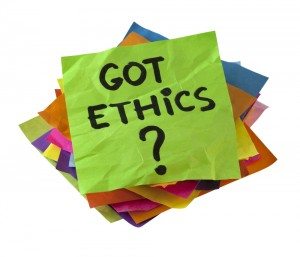 Picture this. You’re on day two of a TV news shoot out-of-town, working with a freelance crew. Location: a high school auditorium. Day one was a morning session and the house lights were on. The photographer got plenty of shots of the action on stage and the audience reaction.
Picture this. You’re on day two of a TV news shoot out-of-town, working with a freelance crew. Location: a high school auditorium. Day one was a morning session and the house lights were on. The photographer got plenty of shots of the action on stage and the audience reaction.
Now it’s the evening of day two. The stage lighting is theatrical–lots of colored gels and spotlights–and the house lights are mostly off. As the crowd applauds one of the acts, you ask the photographer to get reaction shots.
“Just use some from yesterday,” he says. “The lighting was better.”
Well, yes, it was. But seriously? At first I thought the photographer was joking, but he didn’t just suggest this shortcut once. The second time I asked for more cutaways he repeated that he’d shot reactions the day before, and besides, he added, “Who would notice?”
Where to begin the list of all the ways in which this is just plain wrong?
Who would notice? I would, for one. But the audiences for the two events were different. And if just one other person noticed someone else in a cutaway where he or she was sitting at the evening session, all bets would be off on our credibility. If we were willing to cut corners for something so trivial, who’s to say we hadn’t cheated in other ways, or simply made something up?
Besides, even if I was the only one who knew the shots weren’t made at the same event, doing what the photographer suggested would deliberately mislead the audience about what actually happened. The NPPA Code of Ethics could not be more clear: “Do not manipulate images or add or alter sound in any way that can mislead viewers or misrepresent subjects.”
In case you’re wondering, the photographer in question has years of experience and has worked for network news programs. He has a great eye and shoots terrific stuff. I guess this just goes to show you that even a gifted photojournalist can have a blind spot.
Got ethics image via Shutterstock









1 Comment
Deborah,
As a long-time NPPA member, I couldn’t agree more with what you written about photojournalism ethics.
I have gained a little perspective on the freelancing world since my fulltime news photographer postion at KVAL-TV in Eugene, OR was eliminated as part of budget cutting by the station’s corporate owner last December.
Since then, I have been able to land a day’s work every five or six weeks with a local freelance photographer/sound tech/producer when he needs a second crew member. I am very grateful for whatever work he has offered me. He has worked with both network and cable news organizations as well as with some reality shows. He is very good at what he does and does his best to create and maintain good working relationships with out-of-the-area producers while on assignment.
It’s been a real education for someone such as myself who has worked in local TV news turning stories on a daily basis for thirty-four years. What I noticed right away is a certain disconnectedness with the freelance production process. I had grown used to pitching stories in morning news meetings and collaborating with reporters about photography, interviews, storytelling, narrative, writing and editing right up to deadline. And even after the story was aired, the process continued through debriefing and over the longer term measured over weeks, months and even years as the “teachable moments” became a foundation for steadily improving the quality of the local news. I must confess that I miss this process tremendously.
In my minimal experience as a freelancer so far, I am always being supervised, doing what usually amounts to piecework and no longer an equal partner in the process. I have not encountered a situation yet when my code of ethics had to be compromised. But, while driving long distances on the road, I do hear a lot of stories from my freelancer friend about disrespectful producers, producers who lack experience and reality show producers who go well beyond truth and accuracy by pushing video crews and subjects relentlessly seeking “genuine” moments.
But whether working for a good or bad producer,
the day’s assignment sooner or later comes to an end. The footage I have taken to the best of my ability is uplinked or carried away and I am no longer associated with it. I have no input into how the footage will be edited (and no idea if my carefully shot sequences will be used) or if it will be assembled with care and responsibility to the truth.
I guess my point here is that there are apparently freelance producers who may be just as unethical as
certain freelance photographers. But addressing more precisely the situation you shared, Deborah, I cannot help but wonder if some freelance photographers at some level are alienated from the complete scope of the production process. As a news photographer at a local TV station, I had a role and a responsibility to citizens of my community, folks I would encounter again and again on future assignments. As a freelancer, I “do my bit,” I am only a part of the process. I get paid (and very generously compared to my news salary), but my work will go unacknowledged and, of course, uncredited. Being alienated from the process, just might be a contributing factor to the ethical “blind spots” you’ve observed.